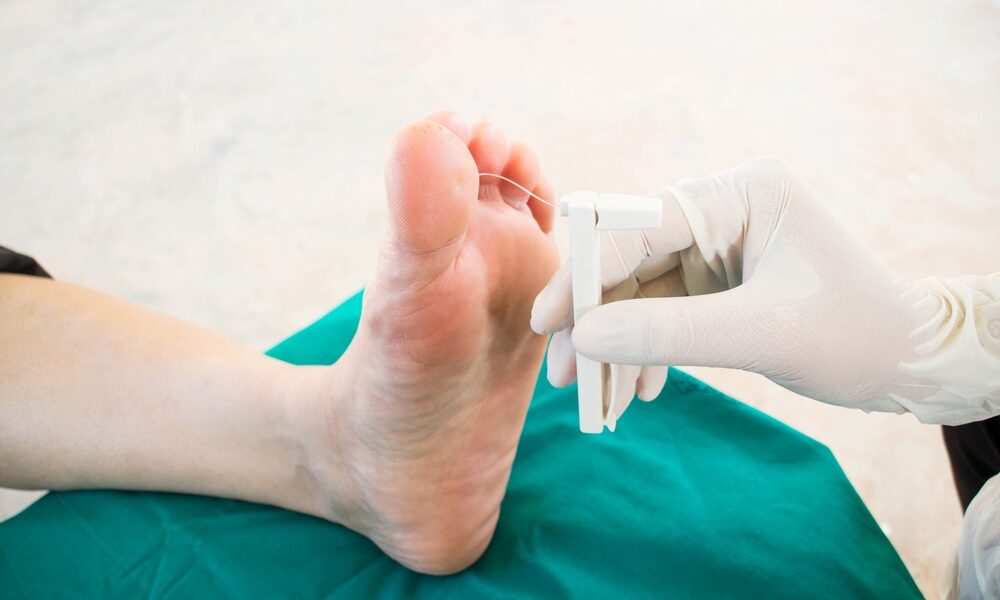Humans and health are closely related and when a person has bad health, there are many things that humans are unable to do as well as when they are in a healthy state. Being sick also costs a fortune. This is why health is always considered as a wealth because once sickness comes, even money is sometimes unable to solve it. Diseases such as diabetes can cause more than just what we already know which is the high level of blood sugar level. One of the common features with those in diabetes is neuropathy. Diabetes care is crucial in these patients.
Diabetes may seem like a common disease of the modern world. You may already know someone in your family or someone you know diagnosed with diabetes. It is estimated that more than 422 million people are diagnosed with diabetes globally. This brings to 1.5 million deaths resulting from diabetes. It is unfortunate that the number of those affected by diabetes remain increased with no signs of the number dropping for the past decades.
A person is often suspected of having diabetes when their blood sugar level shows high in number. These can precipitate many health problems such as higher risk for heart disease, nerve damage, vision problems and impairment kidney function. Although this level of blood sugar is known only from a blood test, a person may show symptoms of diabetes long before they know their blood sugar level. Most common symptoms include extreme thirst, frequent urination, excessive hunger, tiredness and unexplained weight loss.
Type 2 diabetes is diagnosed through several processes. When a doctor determines that the blood sugar level is high or if a person has classic symptoms of high blood glucose such as increased urination (polyuria), increased thirst (polydipsia) or increased hunger (polyphagia) on top of a positive test, doctor may not do any further test. A person is said to have diabetes when their A1C test shows greater than or equal to 6.5%, oral glucose tolerance test (OGTT) shows greater than or equal to 200 mg/dL, fasting blood glucose or fasting plasma glucose (FPG) test shows greater than or equal to 126 mg/dL, and random plasma glucose test shows greater than or equal to 200 mg/dL.
Do you know what exactly is diabetic neuropathy? Neuropathy is the nerve damage characterised by tingling, numbness or weakness in one or more parts of the body. Diabetes can cause damage to the nerve due to the high blood sugar damaging small blood vessels. This excess blood sugar ruins the elasticity of blood vessels, causing narrowing of the blood vessels which then affect blood flow. These blood vessels are the one supplying the nerve. As a result, the nerve is damaged when it is not supplied well and causes an array of symptoms of neuropathy. When we talk about diabetic neuropathy, this is exclusively for neuropathy caused by diabetes.
It is estimated that at least half of those diagnosed with diabetes already have nerve damage such as diabetic neuropathy. You will see that diabetes care plan will include managing blood sugar level. This is because neuropathy itself may actually benefit from this action. Despite this, there is no cure for the damage already done. What a patient can still do is to prevent further nerve problems and there is treatment to improve nerve symptoms. Treatment such as gabapentin, pregabalin, duloxetine, amitriptyline and venlafaxine. Patients may be surprised to know that among the medications used to help treat pain in diabetic neuropathy can be found in treating mental disorders but rest assured because antidepressants have been proven to help with neuropathy.
The most effective way of managing neuropathy and slowing down the progression of the condition is glucose management. This means patient need to ensure they are keeping the blood sugar as close to what is targeted for them. This will includes taking antidiabetic medications and practise healthy active lifestyle. Apart from that, patients are encouraged to keep the blood pressure below 140/90 mmHg, lose weight if they are overweight or obese and to avoid smoking. Patients are also advised to call a doctor if there are symptoms such as cuts or sore to the foot that does not seem to heal, neuropathy symptoms that affect daily life or sleep, dizziness, fainting, digestive issues and problems with urination.
In essence, diabetic neuropathy is one of the many symptoms that can be found in patients with diabetes. It is important for patients diagnosed with diabetes to always follow all advice from their doctor. This is vital in slowing down the disease progression and to avoid complications. Taking antidiabetic medication is often something to help patients maintain low blood sugar level but practising healthy eating habits and engaging in physical activities are still needed to ensure medication and lifestyle goes hand in hand.




